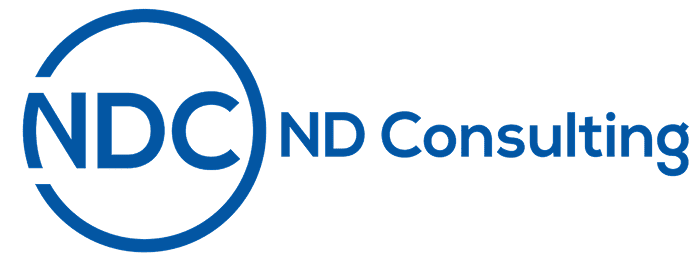Property managers deal with more than just rent collection and maintenance calls. They manage cash flow, reconcile accounts, oversee budgets, and report to multiple stakeholders.
With so many moving parts, traditional accounting tools often fall short of meeting the industry’s growing demands. Among the available solutions, Yardi accounting software stands out as a purpose-built platform designed to handle every aspect of real estate financial management with accuracy and ease.
Across the property management world, Yardi has earned its reputation for being both powerful and adaptable. It streamlines accounting, automates repetitive tasks, and provides real-time visibility into portfolio performance. But what truly sets it apart from generic bookkeeping systems is how deeply it aligns with the operational realities of property management. But that’s not all, let’s dive deeper to understand what truly makes Yardi accounting software the preferred choice for property managers today.
A Unified Financial Management System Built for Real Estate
Most accounting platforms were built for general businesses. Yardi, however, was built for property management from the ground up. The Yardi financial management system integrates accounting, operations, and tenant data into a single ecosystem.
This unified structure eliminates the need for switching between multiple tools or reconciling spreadsheets across different systems. For example, when rent payments are processed, they automatically update the general ledger, bank reconciliation, and owner statements. Everything stays connected.
According to a 2024 report by Proprli, property firms using integrated accounting systems experience accurate financial reporting, leading to fewer financial discrepancies. Yardi’s unified approach directly contributes to that accuracy and reliability.
Automation That Frees Up Time and Reduces Errors
Manual accounting work, especially for property managers handling multiple properties, can be time-consuming and prone to mistakes. Yardi accounting software introduces automation across vital areas like billing, expense tracking, and financial reporting.
With Yardi general ledger automation, transactions are recorded in real-time, reducing the risk of data duplication or missed entries. Automated posting rules and workflows minimize manual data handling, while recurring charges like monthly rents or association fees are processed automatically. This automation dramatically cuts down on financial errors. Making it one of the biggest contributors to long-term efficiency and data accuracy.
Accounts Payable and Receivable Management
Balancing payables and receivables is one of the trickiest parts of managing a property portfolio. Late vendor payments or delayed tenant receipts can disrupt cash flow, impact reputation, and strain relationships. Yardi accounting software simplifies this through its robust Yardi accounts payable and receivable module.
The platform automatically tracks invoices, schedules payments, and manages vendor credits. Property managers can set approval workflows, making sure that payments are reviewed and processed without delays or duplicate transactions.
On the receivables side, rent collection is fully integrated. When tenants make payments, whether through online portals or mobile apps, the system updates the ledger and notifies managers instantly. This seamless connection between payables and receivables keeps property managers on top of their financial commitments while maintaining full transparency.
Real-Time Financial Visibility with Dynamic Reporting
One of Yardi’s biggest advantages is how it translates complex financial data into clear, actionable insights. The platform’s reporting tools let users view performance metrics by property, region, or portfolio, all in real time.
With Yardi accounting software, managers can build custom dashboards that visualize income, expenses, delinquency rates, and occupancy performance. These insights are particularly valuable during budget planning or investor reporting periods.
Yardi also integrates tightly with Yardi bookkeeping software modules, allowing for quick access to ledgers, journals, and statement generation. This structure makes sure that decision-makers always have the data they need, without relying on external spreadsheets or manual consolidation.
Built-In Compliance and Audit-Ready Features
Compliance is non-negotiable in property management. Whether it’s adhering to local tax regulations, trust accounting rules, or investor reporting standards, mistakes can be costly. Yardi simplifies compliance by embedding audit-ready processes throughout the platform.
Every financial transaction in Yardi accounting software carries an automated audit trail, tracking who made changes, when they were made, and why. This transparency is invaluable during audits or internal reviews.
The system also supports property-level segregation of funds, a crucial feature for companies managing multiple ownership entities. With clear visibility into each property’s income and expenses, managers can produce detailed owner statements that meet even the strictest reporting standards.

Scalability for Growing Portfolios
Many property management companies start with a few properties and expand rapidly. Yardi’s modular architecture allows businesses to grow without replacing or overhauling their accounting platform.
Whether managing 10 units or 10,000, Yardi accounting software scales smoothly. It supports multi-entity accounting, multiple currencies, and inter-company transactions, making it ideal for global portfolios or diversified property types.
This scalability is why Yardi is trusted by some of the world’s largest real estate management firms. In fact, over 12 million residential units and 12 billion square feet of commercial space is being managed currently in over 80 countries using Yardi. Clear proof of its adaptability and reach.
Powerful Budgeting and Forecasting Tools
Strategic planning is critical to long-term property performance. Through its advanced budgeting module, Yardi lets property managers project future income and expenses with accuracy.
Linked directly to accounting and operations data, Yardi accounting software uses historical performance to generate forecasts, helping managers anticipate revenue dips, maintenance spikes, or rent adjustments. This connection between budgeting and live data gives property firms a strong edge during annual planning and investor reporting cycles.
The forecasting accuracy not only improves resource allocation but also strengthens investor confidence, something every property management business values.
Integration with Operational and Tenant Tools
Unlike standalone accounting software, Yardi functions as part of a larger ecosystem that connects finance, operations, leasing, and tenant management. The Yardi financial management system communicates seamlessly with property operations and CRM modules, creating a complete picture of performance.
For example, when a lease is signed, rent charges automatically populate in the accounting module. When maintenance expenses occur, costs update against the correct property and vendor accounts. This tight integration removes silos and allows managers to make faster, better-informed decisions.
Strong Support and Continued Innovation
One of the often-overlooked benefits of Yardi is the support behind it. The company provides ongoing updates, technical support, and training programs for property managers and finance teams.
Through these initiatives, Yardi helps clients stay current with evolving accounting standards and digital tools. This focus on user success reflects Yardi’s long-term commitment to helping businesses thrive, not just function.
The Role of Yardi in Modern Property Management
As the real estate industry grows more data-driven, property managers are seeking systems that provide transparency, speed, and reliability. Yardi accounting software offers all three, combining precision bookkeeping, automation, and strategic insight into one cohesive platform.
Its ability to handle multi-entity accounting, automate general ledger entries, and generate custom financial reports sets it apart from generic systems. Moreover, its integration with leasing, maintenance, and operations makes sure that property managers never have to chase data between disconnected systems again.
In an era where real estate decisions are guided by real-time analytics, Yardi stands as both a foundation and a growth tool for property professionals.
Conclusion
For property managers balancing financial complexity and operational demands, Yardi accounting software is their strategic partner. From automation and compliance to budgeting and reporting, it simplifies what used to be labor-intensive tasks while improving accuracy and control.
With integrated Yardi bookkeeping software, advanced automation tools, and robust reporting features, it brings structure and intelligence to every level of property management.
As the real estate landscape evolves, the flexibility, reliability, and scalability of Yardi accounting software continue to set it apart as the industry’s most trusted solution, helping property managers stay ahead, organized, and profitable.





